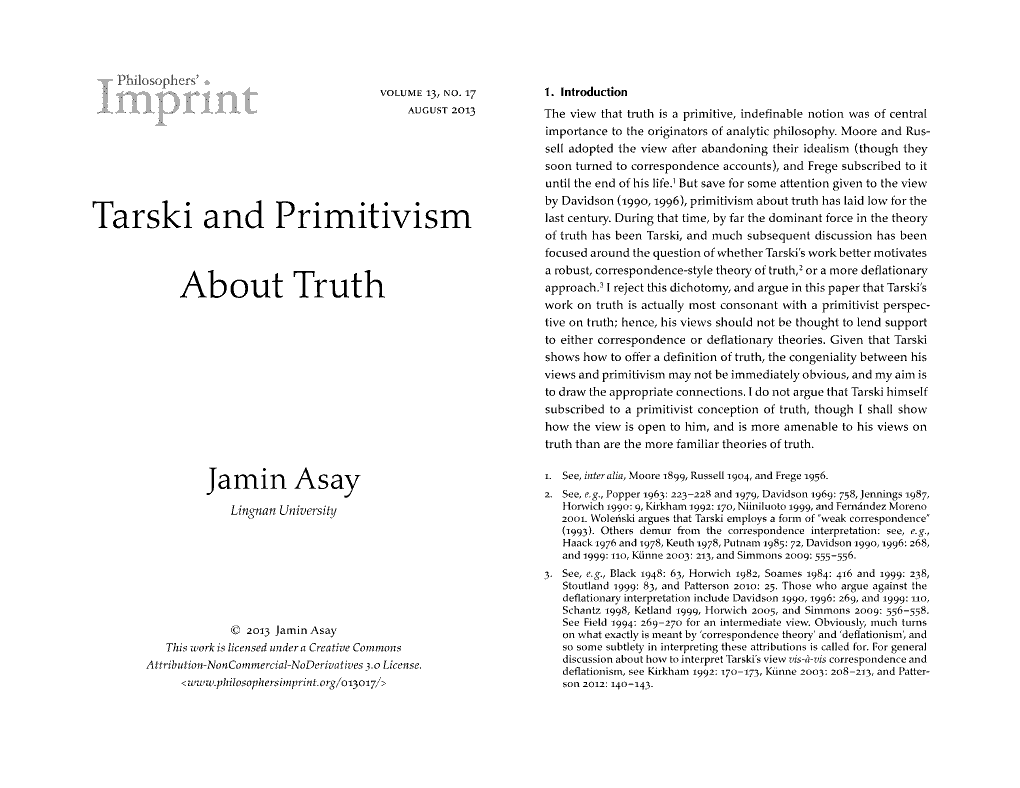Tarski and Primitivism About Truth
Skip other details (including permanent urls, DOI, citation information): This work is licensed under a Creative Commons Attribution-NonCommercial-NoDerivatives 3.0 License. Please contact [email protected] to use this work in a way not covered by the license.
For more information, read Michigan Publishing's access and usage policy.
Abstract
Tarski’s pioneering work on truth has been thought by some to motivate a robust, correspondence-style theory of truth, and by others to motivate a deflationary attitude toward truth. I argue that Tarski’s work suggests neither; if it motivates any contemporary theory of truth, it motivates conceptual primitivism, the view that truth is a fundamental, indefinable concept. After outlining conceptual primitivism and Tarski’s theory of truth, I show how the two approaches to truth share much in common. While Tarski does not explicitly accept primitivism, the view is open to him, and fits better with his formal work on truth than do correspondence or deflationary theories. Primitivists, in turn, may rely on Tarski’s insights in motivating their own perspective on truth. I conclude by showing how viewing Tarski through the primitivist lens provides a fresh response to some familiar charges from Putnam and Etchemendy.



